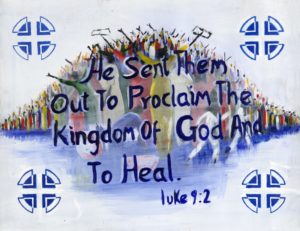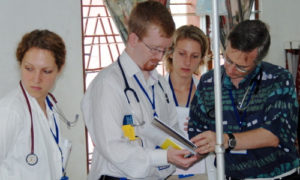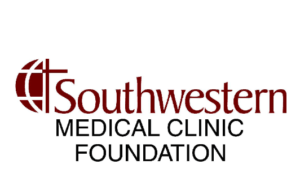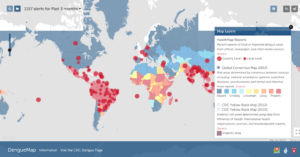[vc_row][vc_column][vc_column_text]
Case Studies from the Field – Jeff
 Every year it seems as our team works in the medical clinic in some small village setting in Ghana, there is always at least one special case that as a team we revolve around as a whole, to help ensure, that this person is saved at least physically. That individual is typically quite ill, and has no other means or assistance to be cared for, or has nowhere else to turn for aid. One could say that many in rural Ghana would fit this description. However, as with many things in our lives, there are certain cases or experiences that touch us and resonate in our hearts more than others. This year was no exception.
Every year it seems as our team works in the medical clinic in some small village setting in Ghana, there is always at least one special case that as a team we revolve around as a whole, to help ensure, that this person is saved at least physically. That individual is typically quite ill, and has no other means or assistance to be cared for, or has nowhere else to turn for aid. One could say that many in rural Ghana would fit this description. However, as with many things in our lives, there are certain cases or experiences that touch us and resonate in our hearts more than others. This year was no exception.
The first community we were working in this week was Mpasatia which is located in the Ashanti region. It may have been our second or third day in the village, when I met Jeff. He had come to our makeshift clinic with his uncle. Immediately, I could see that Jeff was not well. The glowing yellow of his eyes was obvious to anyone, even our non-medical team members, that Jeff was not well. I quickly glanced at his registration card on which we gather patient’s vital signs and physical exam. It stated that Jeff was thirteen years old, but by the looks of him, he looked no bigger than my eight year old son. Chronic malnutrition runs rampant in Ghana.
As I tried to gather a history from his uncle and Jeff via my interpreter, Prince, I kept my eyes focused on Jeff. He looked tired and pale as he slumped down in a plastic chair which is so ubiquitous in Ghana. He indicated that he had had an intermittent fever, perhaps a cough, but no diarrhea, or recent blood transfusions, and no knowledge of any exposure to hepatitis B. I doubt that he or his uncle even would know what hepatitis B is but it is helpful to ask.
Hepatomas and liver cancer from perinatal, or exposure at birth, to hepatitis B infection are all too common and deadly that many lay people know precisely what that is. Other than the paleness of his skin and nails, and his obvious jaundice and fatigue, there was nothing more from his physical examination. Neither his liver nor spleen was remarkably enlarged nor was there any abdominal tenderness or heart or lung findings. I sent him over to our basic lab table for rapid malaria testing and anemia testing. Falciparum malaria is highly endemic in Ghana and still a major cause of death. Unsurprising, his malaria test was positive, but his hemoglobin, the substance that carries oxygen in our bloodstream, was critically low at approximately 4 grams. A normal person his age should have a level around 14 grams. If he had sickle cell disease, which is a common hemoglobin variant in West Africa, I would expect a level around 8-10 grams. However, our clinic does not have the resources to do further investigations, and clearly Jeff needed a transfusion right away. With his malaria infection, the parasite was hemolyzing, or destroying, his red blood cells which release bilirubin, a substance that causes jaundice/yellowness of skin, and it was inhibiting his bone marrow from effectively producing more red blood cells.
Jeff’s uncle was advised that Jeff needed to be taken to the hospital right away. He needed blood which family members would likely have to donate right away, as well as intravenous anti-malarial medicine. The uncle went back to the mother to inform her of the situation. We soon learned that Jeff’s family did not have the Ghana National Health Insurance, nor could they afford to self-pay any of the treatment that we were advising. Plus, he had to be transported to the hospital likely by taxi or tro-tro (a mini-van bus which is often overcrowded). All those costs were insurmountable for Jeff’s family, but he would surely die very soon without intervention. So our team stepped in to help. Prince, my translator for the medical outreach, who also happens to be the chief library officer at the Ankaase town library, initiated the care. He willingly gave the equivalent of US $25 and arranged for transportation for Jeff to the district hospital. The team roughly calculated what the financial costs of all this would be, and then arranged for Jeff’s care by prepaying for his blood transfusion and emergency treatment. Jeff was admitted, transfused, and treated for his severe malaria infection and anemia. He stayed for a couple days, and was discharged from the hospital looking and feeling 100% better. Our team paid the hospital the remainder of his hospital bill which only amounted to a few hundred dollars, and his mother was so grateful for getting her son back alive.
Unfortunately, these types of cases are all too common and it is sad to think about how many don’t get the treatment they need. However, by God’s prevenient grace we can help a small number; those that God has set on the same path as us and that we were in the right place at the right time. We are also grateful that the treatment for Jeff was simple and available. Often times, we see patients with conditions or deformities that require the skills of a sub-specialist that may only be available in the capitol of Accra.
As for Jeff, he did get further testing at Ankaase Hospital and was found to have sickle cell disease. However, we don’t know if we will ever see him again, but we pray that he is thriving and getting stronger each day and that Christ is working in his life and helping him grow to be the man God wants him to be.[/vc_column_text][/vc_column][/vc_row]









